Togo
Hundreds of journalists and civil-society members came together in Togo’s capital, Lome on Tuesday to protest the closure of two media bodies; television station LCF and radio City FM.
The group accused the country’s main broadcast media regulatory body, the High Authority for Audio-visual and Communication (HAAC) of trying to muzzle the press, in a country where the media has often had a fraught relationship with the authorities and press freedom has been under considerable restrictions in recent years.
A lawyer and secretary general of Togo’s Human Rights League, Celestin Agbogan said they have noticed that the freedom of press is slowly being restricted.
“Since the 1990’s, the people of Togo have fought in order to gain a number of rights in this country. But today, We have noticed that there are people with bad intentions who want to question all that has been gained through a democratic process,” he added.
HAAC say the closure came following findings that the two media houses were illegally broadcasting without proper licenses since 2007.
A claim that editors of both houses rejected. They say they have complied with the law and HAAC regulation.
Some critics claim the closures are politically motivated after the owners of the two media entities allegedly had a fall out with Togolese authorities.
“In it’s mandate to conduct the evaluation of media houses in Togo, the High Authority for Audio-visual and Communication has come to realise that the television channel LCF and radio CFM who have been broadcasting since 2007 had not obtained any authorisation to do so by the broadcasting authority,” said Mathias Ayena, a member of HAAC.
Journalists in Togo often accuse the authorities of trying to clamp down on any reports that are critical of President’s administration.
In 2013, Togo’s parliament passed a law aimed at giving the HAAC power to impose restrictions on news outlets and to suspend or withdraw media bodies operating licences without having to go to court.
Many journalists say intimidation and harassment and violent confrontations between police and journalists are common.
Journalists and civil-society groups have vowed to continue protesting the closures and are due to hold protests in Lome for the next two days.




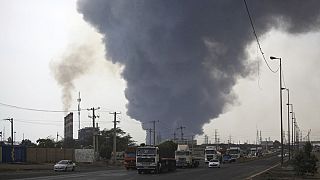
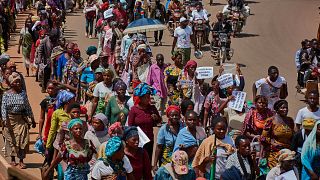

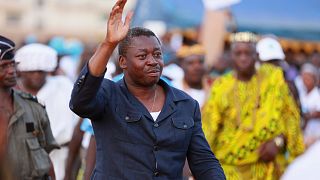
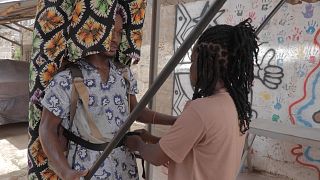

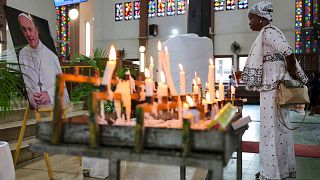
Go to video
Burkina: 3 journalists arrested, HRW denounces media repression
Go to video
Ghanaian Journalist Anas Aremeyaw Anas wins $18M in US defamation case against former MP
01:06
Italian journalist Cecilia Sala returns home after detention in Iran
00:47
Niger suspends BBC for 'spreading false news' after covering attack
Go to video
Journalist abducted in Guinea amid media crackdown
00:50
Burkina summons newspaper head over Mali reporting